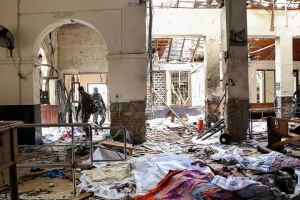Staid Uzbek election, futuristic Kyrgyz city plans, and educational squeeze in Tajikistan.
That Uzbekistan’s presidential election would be won by the incumbent, Shavkat Mirziyoyev, was a given.
So in this edition of the EurasiaChat podcast, Alisher Khamidov and Peter Leonard discussed how this vote came to be and what it implies for the future of Uzbekistan.
The authorities insist the election was needed because of the changes made to the constitution earlier this year.
“The argument that the authorities are making really is to say: ‘How can we have the same president now that we have a new constitution,’” Peter said, ventriloquizing the Uzbek authorities.
Of course, the catch is that the constitutional reset does also means that Mirziyoyev will get to extend his stay in office for another 14 years.
Citing views he heard while traveling in Uzbekistan, Alisher said that a certain level of disillusionment is setting in over the pace of reforms. It isn’t clear that Mirziyoyev has the clearest of visions for the future, although his election platform sets out ambitious goals.
Speaking of ambitions, in neighboring Kyrgyzstan, President Sadyr Japarov is dreaming big with his idea of building a new city on the Issyk-Kul Lake: Asman.
As Japarov sees it, Asman is going to be a futuristic city that will propel the country into its bright future. It will be expensive though. Officials have said they anticipate $20 billion in investments to make Asman a reality.
Alisher and Peter wonder whether this project is born out of necessity or if its merely a whim to boost the president’s ego. There is a regional precedent for this after all. In Turkmenistan, the newly built city of Arkadag was officially inaugurated only last month. Arkadag is the honorific by which the former president, Gurbanguly Berdymukhamedov, is known.
The impulse to build these cities appears to arise, says Alisher, from the need for leaders to leave behind a physical artefact.
What governments across Central Asia often struggle to value is the importance on intangible but no less important legacies, like the building of human capital.
There is no better testament to that than what is happening in Tajikistan, where the authorities are embarked on a relentless campaign to squeeze out the operations of a charitable organization funded by the Agha Khan, the spiritual leader of the country’s Ismaili minority.
Agha Khan entities provided vital assistance to the citizens of Tajikistan in years of desperate need in the early 1990s, and after that they built an impressive network of education and healthcare facilities. One major achievement has been the construction of the University of Central Asia in the Pamirs city of Khorog, where teaching is carried out in English.
Alisher and Peter discussed the roots of the government’s hostility toward the Aga Khan organizations. They stem from many anxieties in Dushanbe – some are to do with international relations, others likely arise from the critical thinking approach to education that is promoted by Aga Khan schools.
A critically thinking population is one that is inimical to the interests of an authoritarian government like that of Tajikistan.
Source : EURASIANET










